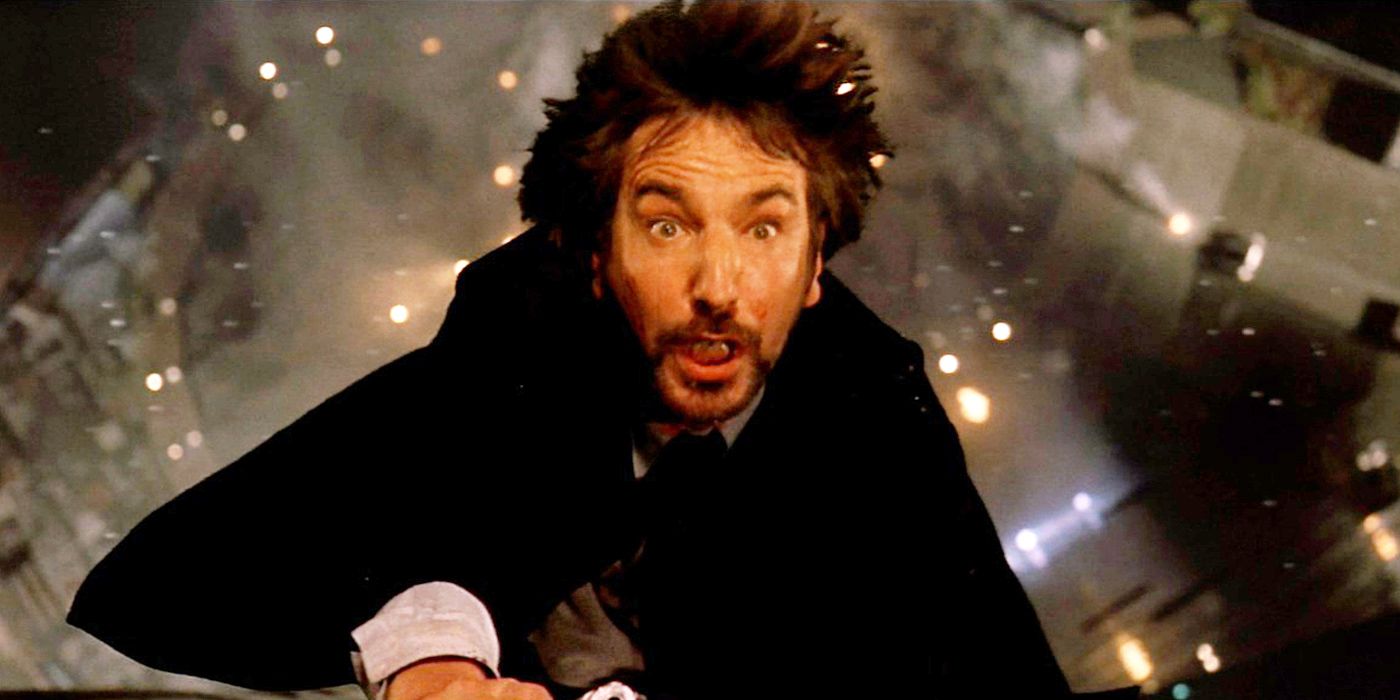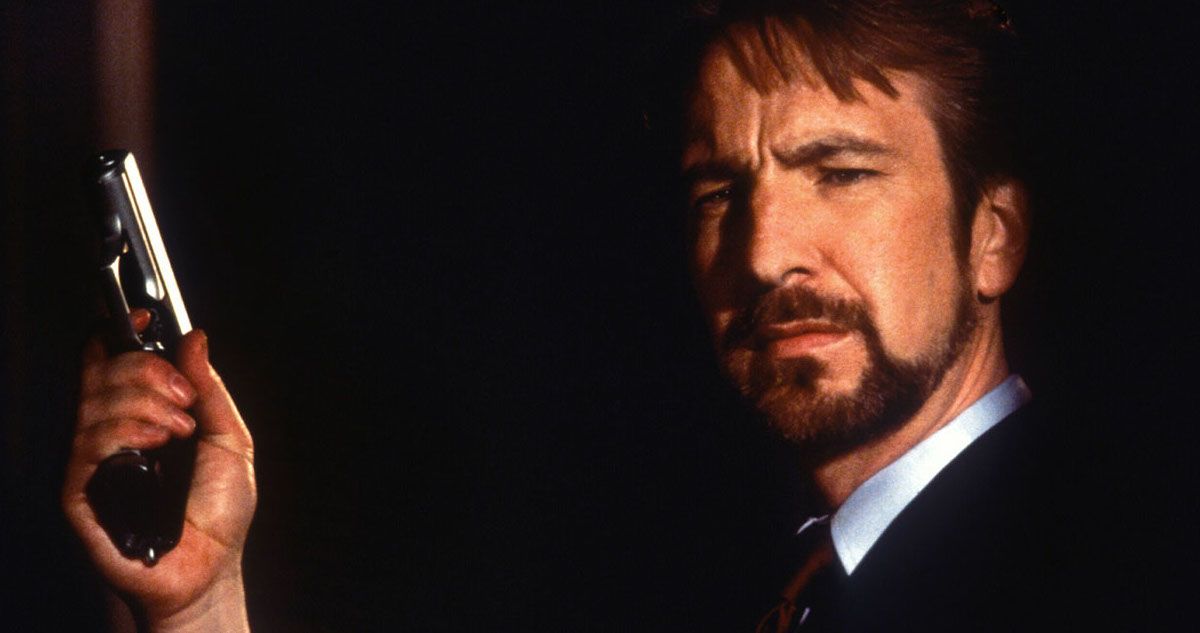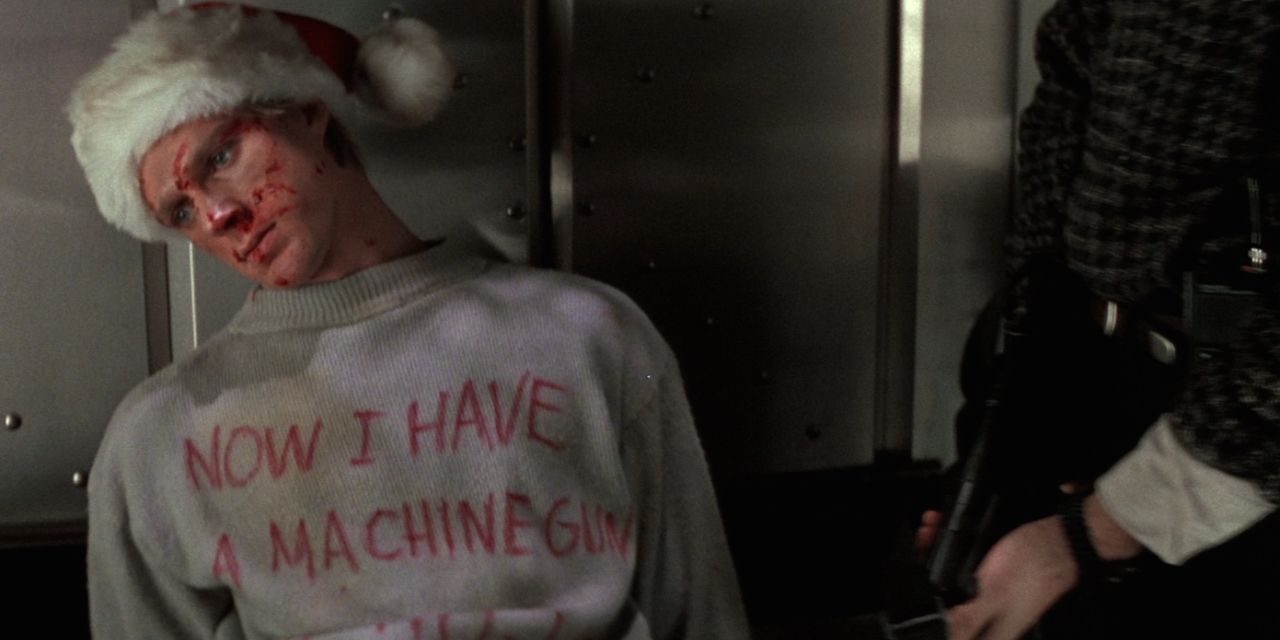It can be argued Hans Gruber, brought to life by the incomparable Alan Rickman, is the real star of Die Hard. With just a few narrative tweaks and a little bit more screen time, the movie could've been a dastardly-focused franchise in the making. That’s because Gruber is not only a great villain, but he also might be the best of all-time.
Die Hard may be told from the perspective of the titular hero, street-tough New York cop, John McClane, but Gruber fights the film’s star for the spotlight, especially in the few scenes they share together. Great villains are so hard to come by, especially ones that have as much depth as Gruber.
The killing of the guards stationed in the lobby as the movie begins illustrates the deadly seriousness of the events that are about to unfold. Gruber's introduction establishes him as powerful enough to motivate others to commit murder, but also willing to go along for the ride. But what really makes Gruber the perfect villain for modern cinema is the way he goes about his business.
He demonstrates restraint to avoid needless bloodshed, as seen when he decides not to kill most of the party guests, at least right away. Gruber even goes as far as to present himself with reverential authority to the people, while still offering them a chance to save themselves if they do as their told. Even when he kills, his evil can be met with a mixed response. Killing the slick and slimy Lewis was a clear message to the police and the other guests -- taking out more would have been, well, overkill -- but the murder of his boss felt far more savage and brutal, reminding audiences this adversary could also be merciless.
Later on, Gruber’s attempts to bond with Nakatomi Trading President Joseph Takagi through their higher educations and superb fashion sense was immediately rebuffed. He was looking for the reciprocated respect of his elevated position of criminalized authority, something Takagi was too smart to relinquish. Even when he just wanted him to give up “the code” to help open the vault he was trying to rob, Takagi stood his ground against a man who likely felt he had no equal. Gruber, for all his skill and firepower, was powerless to sway Takagi.
When Takagi accepts his fate rather than giving in to Gruber, it exposed a weakness in the villain's armor without a single shot being delivered. Gruber tries to own the space he is in, regardless of whom he shares it with, which provides a glimpse of his one possible Achilles' heel -- hubris, a dangerous human condition that can undo even the most intricate evil masterplan.
Far too often, movie villains are relinquished to over-the-top caricatures of super-evil-doers or savage killers with an insatiable blood lust for global domination. It’s easy to make a character like that, but it's a lot harder to make them human, Through it all, Hans Gruber delivers the kind of evil that the audience can cheer for when it dies but is still likable enough for them to be sad to see it go.



